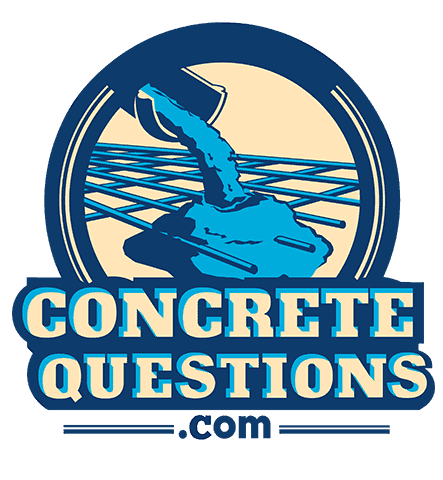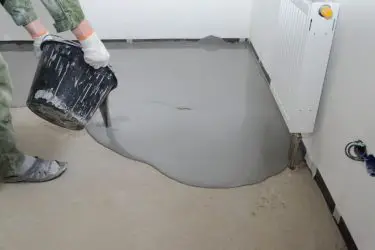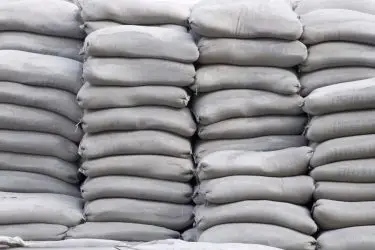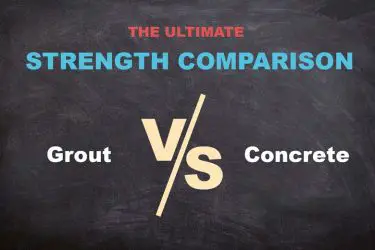Leveling concrete floors in your home can be an absolutely nerve-wracking experience. Nobody wants to mess up their floor while trying to fix it.
Leveling concrete is something most people can do even if they are not professionals since most retail stores carry leveling solutions designed with laymen in mind. It shouldn’t be too difficult for somebody who is a complete novice to level concrete with the proper tools.
Of course, it’s still important to be careful and plan. As long as you’ve prepared yourself for the project, you should expect positive results.
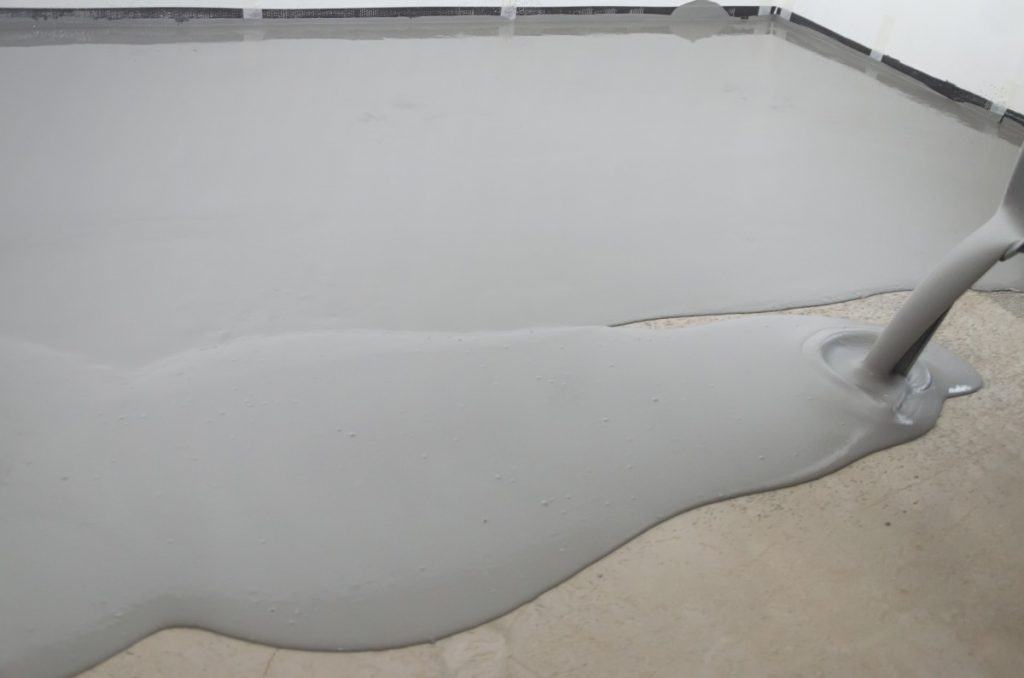
Table of Contents
When Do I Need To Level My Floor?
Usually, you only need to level your concrete floor if it either has major flaws in it or you want to install new rigid flooring.
However, not every concrete slab will need to be leveled before you install a new floor. This is because even on slabs that have a distinct slope to them, as long as the surface doesn’t have notable bumps leveling shouldn’t be necessary.
It could also be a beauty project like restoring an old slightly damaged concrete floor. In this case, any time that you want to do it will be fine. If it looks like it needs leveling, then level it.
What Will I Need And How Much Will It Cost?
The most important thing you’ll need is a concrete leveler. This can be purchased at any of the big box hardware stores. You won’t need to pour it very thick, which is nice because like concrete it can take quite a bit to fill large areas.
Read more: How Thick Can You Make Self-Leveling Concrete?
At just half an inch of thickness, fifty pounds of concrete leveler should cover about fifty square feet of material. Before you start work, you should measure the space you plan to level to figure out how much you’ll need.
Depending on where you go, fifty pounds of leveler can cost between 32 and 35 dollars. It usually comes dry, meaning that it will need to be mixed in a bucket or a wheelbarrow before it’s applied.
To do this, you’ll want both a suitably sized container and a piece of wood or other material you can safely use to mix it.
Remember that these products use concrete as a base, which means that both in dry and wet forms they are highly caustic. Before working with them, make sure that you have rubber gloves for your hands and thick, waterproof boots for your feet.
Everyone working with it will want both masks and protective eyewear, as direct contact with concrete powder or wet concrete can damage any part of the body.
You’ll also need measuring equipment like spirit levels and rulers.
How Do I Do It?
Here are the basic steps for using self-leveling concrete. Do you want more information and more in-depth instructions on how to do it, check out our article “How To Use Self-Leveling Concrete (The Ultimate Guide)”.
The first thing you’ll want to do is clean the floor thoroughly, getting rid of any dust or oils that may be sitting on the surface of the concrete slab.
When this is done, you’ll need to measure the depth of any cracks or indents in the ground. Make sure that they aren’t deeper than the maximum depth for the kind of leveler that you have.
You’ll also need to take into account whether or not the floor is sloped. If it is, you’ll need more leveling solution to cover the same amount of space.
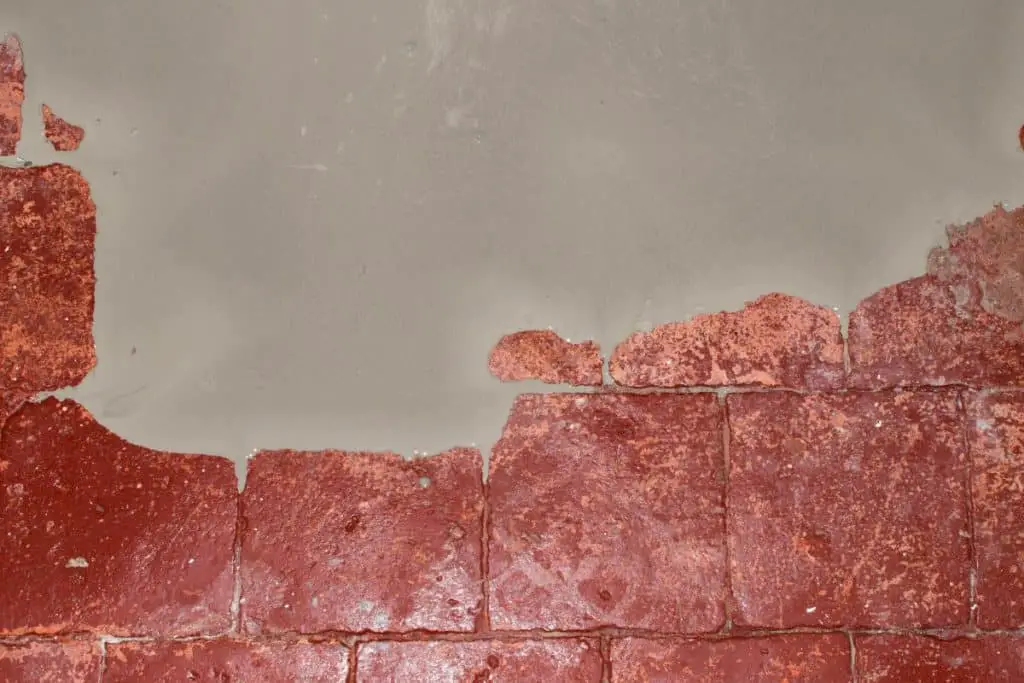
Next, you’ll need to apply a latex concrete sealer overtop the concrete. If any cracks are too deep for your leveler, you’ll also want to fill them with a suitable concrete filler.
Now you’re ready to mix your compound. Follow the instructions on the bag to get the right water to the leveler mix. Pay close attention to how much water you add in since once you’ve added water to concrete you can’t really take it out.
Now you’ll need to quickly apply the leveler to the low points of your slab first, immediately afterward covering the rest of the floor. As you go, use something like a piece of wood or a trowel to smooth the surface of the leveler.
Remember that the leveler will be dry just one hour after it’s been mixed with water, so you have to go quickly.
If you have time after you’re finished, you should clean anything that came into contact with the concrete using a garden hose. If concrete is allowed to dry on something, it can be nearly impossible to remove.
Can I Really Do It By Myself?
If the room that your leveling isn’t very big, then absolutely yes.
Remember that you’ll only have one hour to get all of the applications done, meaning that if you don’t think you can finish the project within that time frame it can be worth finding someone to help you.

However, the project is simple enough that there’s no need to hire someone to do it for you. Roll down your sleeves, pick up your trowels, and go carefully but quickly apply that leveler!
